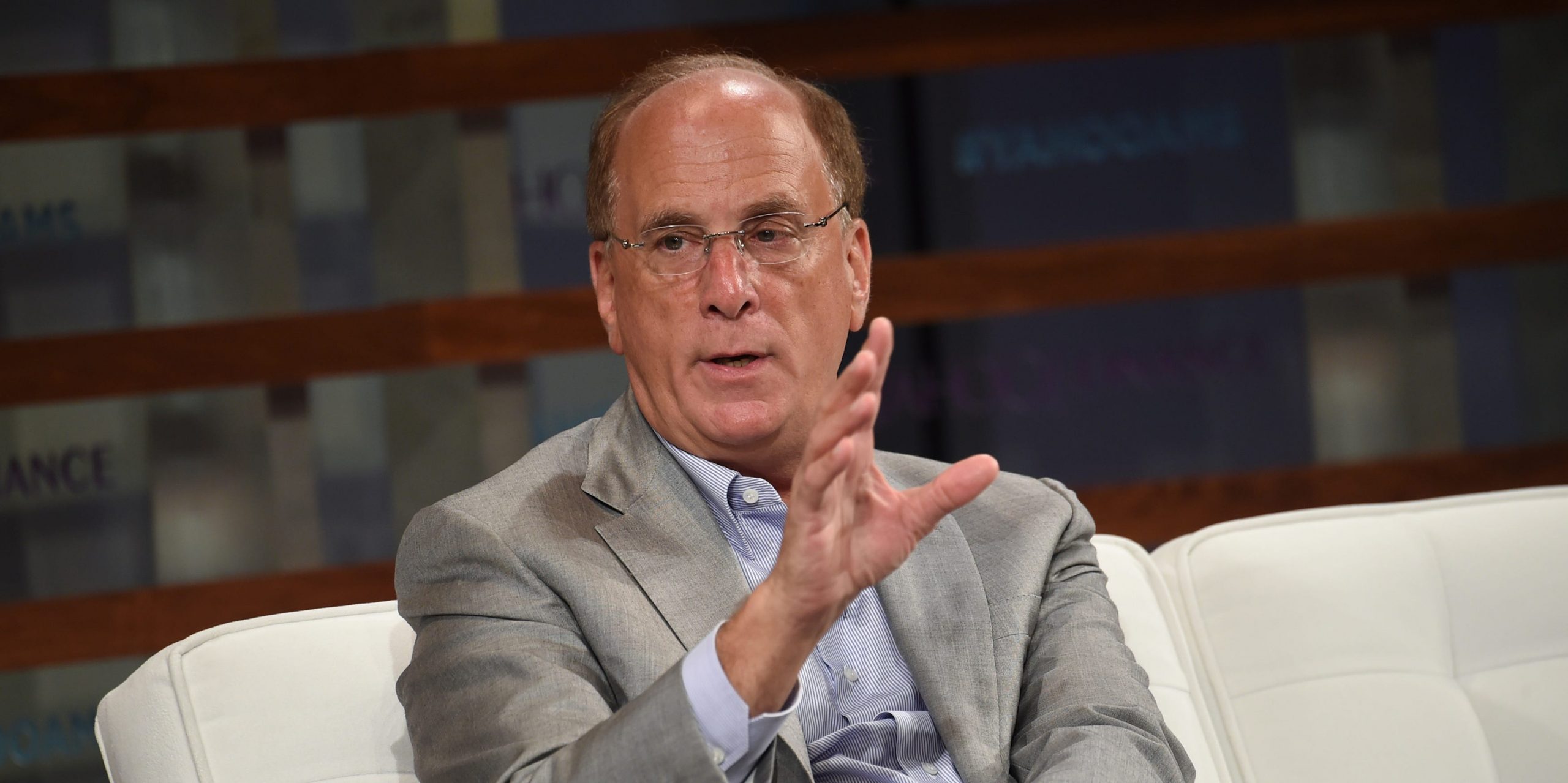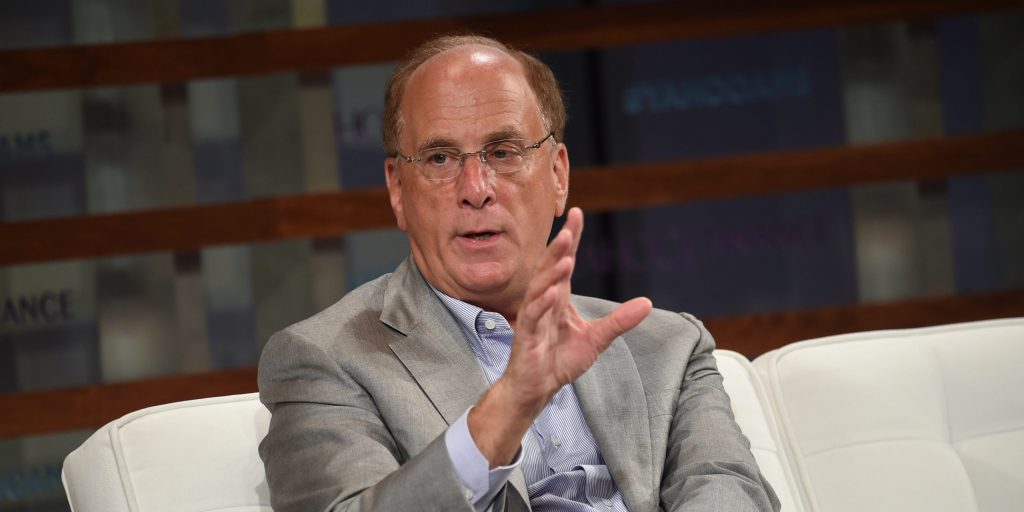
- BlackRock CEO Larry Fink laid out his definition of stakeholder capitalism in his annual letter to CEOs.
- The ideology might not be "woke," but it relies on benefitting everyone, not just shareholders, he said.
- Capitalism is under "constant reinvention," and firms need to think beyond boosting profits, he added.
Today's capitalism isn't "woke," but it's not an all-out rush for profits, either, BlackRock CEO Larry Fink said Tuesday.
The pandemic and subsequent recovery have fueled a broad rethink of the US economy. Workers are winning huge raises after decades of subpar wage growth. Millions of people are quitting each month as the labor-market shakeup continues. The shift in power from employer to employee is a much-needed course correction for the country, Fink said in his annual letter to CEOs.
And Fink argued that this shift is just the natural evolution of how capitalism can best work to build a strong economy.
"Stakeholder capitalism is not about politics. It is not a social or ideological agenda. It is not 'woke,'" he said. "It is capitalism, driven by mutually beneficial relationships between you and the employees, customers, suppliers, and communities your company relies on to prosper."
Fink's words carry weight. BlackRock manages some $10 trillion in assets, making it the world's biggest asset manager and a major player in the corporate sphere. It's also been one of the loudest voices in support of environmental, social, and corporate governance (ESG) investing, with Fink often highlighting climate change and sustainability in his annual letters.
The changes seen over the past year are a hallmark feature of US capitalism, Fink said. The ideology relies on "constant reinvention" as new competition and trends shape how companies perform. While older forms of capitalism might've emphasized shareholder gains over all else, today's companies need to benefit their "full range of stakeholders" if they're to also serve as strong investments, Fink said.
"It is through effective stakeholder capitalism that capital is efficiently allocated, companies achieve durable profitability, and value is created and sustained over the long-term," he said, adding "the fair pursuit of profit" is still what powers markets.
The shifting labor market is Exhibit A of the new capitalism
The pandemic only accelerated the reinvention of the US economy. Remote work evolved from a fringe option to the new normal for millions, and the relationship between companies, their workers, and society "is being redefined," Fink said. Record-high quits and decade-high wage growth underscore just how dramatic those relationships are changing.
How companies adapt will likely shape the labor market for decades to come. Workers calling on their firms for higher pay and better conditions is "an essential feature of effective capitalism," Fink said, as it's the free market setting a new standard for deals between employers and employees. Companies meeting these calls "are reaping the rewards" and facing lower levels of turnover, while those ignoring workers are falling behind, the CEO added.
"Companies not adjusting to this new reality and responding to their workers do so at their own peril," he said. "Turnover drives up expenses, drives down productivity, and erodes culture and corporate memory."

